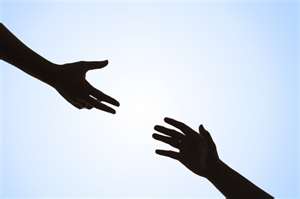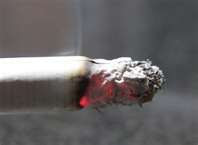Maybe you are happy when you saw the beautiful, variety of colors, and has different sounds, but if you will see the effects of this you must be aware. Don't wait it to happen in your life. You can be happy without affecting others. So Just think of it.
Fireworks consist of a wide range of products with a highly variable composition. About 1000 tonnes of this consists of materials such as tubes, structural parts and packagings (cardboard, wood, plastic), and 360 tonnes of the pyrotechnic components. These consist of approx. 240 tonnes of black powder (gunpowder) and 120 tonnes of chemicals to produce effects. These effects mixtures contain metallic compounds that may have an impact on the environment or human health.
The possible impacts of fireworks on the environment and human health may be summarised as follows:
1. Accidents: Accidents can occur if fireworks are handled incorrectly during sale and use:
Safety regulations for the sale of fireworks in Switzerland are contained in the Ordinance on Explosives. Regulations for the use of fireworks are published by the industrial association, the Swiss Central Fireworks Office (SKF).
International surveys have shown that the accident rates associated with fireworks are around 2 - 13 accidents with injury to persons per 100,000 inhabitants. Minors are disproportionately represented among the injured. This group is thus exposed to a higher risk. (Corresponding statistics do not exist for Switzerland, but may be approximately the same as those from abroad. )
Every year, fireworks cause fires. The resulting damage to property amounts to 0.6% of the total fire damage in Switzerland.
2. Noise: At the distances where people watching fireworks usually are, noise levels can exceed the impuls noise limit according to SUVA guidelines. The nuisance of firework noise should not be ignored. For noise-sensitive groups, this nuisance can be substantial, since it causes anxiety and corresponding stress reactions. There are no studies of this effect.
3. Air pollution: In the combustion of fireworks, the main component gunpowder gives rise to the solid reaction products such as potassium carbonate, potassium sulphate and potassium sulphide, together with unreacted sulphur. The reaction products from effects mixtures are generally solids and consist of metal oxides and, less often, chlorides. The air pollution caused by firework reaction products is well documented by measurements in Switzerland and abroad. Fine particulates are notable in reaching record short-term pollution levels. Evaluation of data from Swiss gauging stations shows that over a short period, such high levels of respirable fine particulates (PM10) may be reached that the 24h average values may exceed the 50 µg/m 3 threshold stipulated in the Ordinance on Air Pollution Control (OAPC). This value is laid down for health reasons and may be exceeded only once a year. International surveys - in more polluted areas - show that susceptible people may be measurably affected.
Dioxins can be released during the combustion of copper containing fireworks. Laboratory experiments, which investigated the extent of dioxin formation caused by setting off various pyrotechnic devices, and measurements taken during Bonfire Night in Great Britain where both bonfires and fireworks are burned as in Switzerland, indicate that bonfires are a far more significant source of dioxin than pyrotechnic devices, especially when waste wood and other wastes are burned.
4. Pollution of other environmental compartiments and indirect effects: The firework reaction products that are emitted are deposited and thus enter the soil, crops and, in the case of fireworks over water, standing waters. This pollution has not been measured yet. Therefore, the deposition of firework-related elements must be estimated from model calculations.
Ecotoxicological and toxicological benchmarks for all firework-related elements were taken from the literature. The present assessment shows that firework-related depositions do not cause problematic soil and water contents, and the evaluations suggest that indirect effects (uptake through the food chain, soil ingestion by children) are also not critical.
5. Waste: Some 1000 t additional waste are annually generated by fireworks.
Conclusions:
According to model calculations, the resulting soil and water pollution due to deposition of fireworks related elements is negligible. The assumed deposition rates should be verified, at a minimum by measuring barium as a marker in the fallout or in environmental samples such as grass or dust from sealed areas.
Since non-quantifiable fractions of firework reaction products also occur in the shells as slag, farmers and parents are advised to remove visible firework residues from fields and playgrounds after use.
Air pollution, particularly associated with large fireworks displays, cannot be ignored. Immissions of respirable fine particles (PM10) are at the level of injury to sensitive persons.
There is some evidence that large fireworks displays may lead to high PM10 concentrations. Thus OAPC immission threshold could be exceeded if major pyrotechnic displays are performed on 1st / 2nd August and 31st Dec. / 1st Jan, respectively. We should point out that, according to NABEL measurements, the 24h average for PM10 is currently been exceeded on 20 to 77 days per year. Putting things into perspective, a general ban of fireworks devices is not intended.
We can live without it, or even achieve happiness in many other ways. It's just a waste of money, spend it to other things. You can find another thing to satisfy you and expect much more than the fireworks can do.
Source: http://www.angelfire.com/co3/NCFS/science/environmentalimpact.html

















